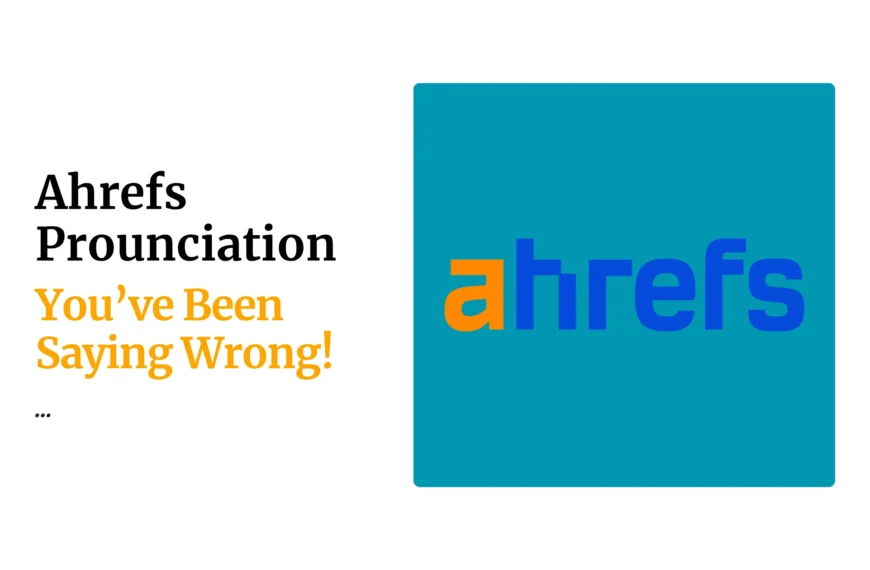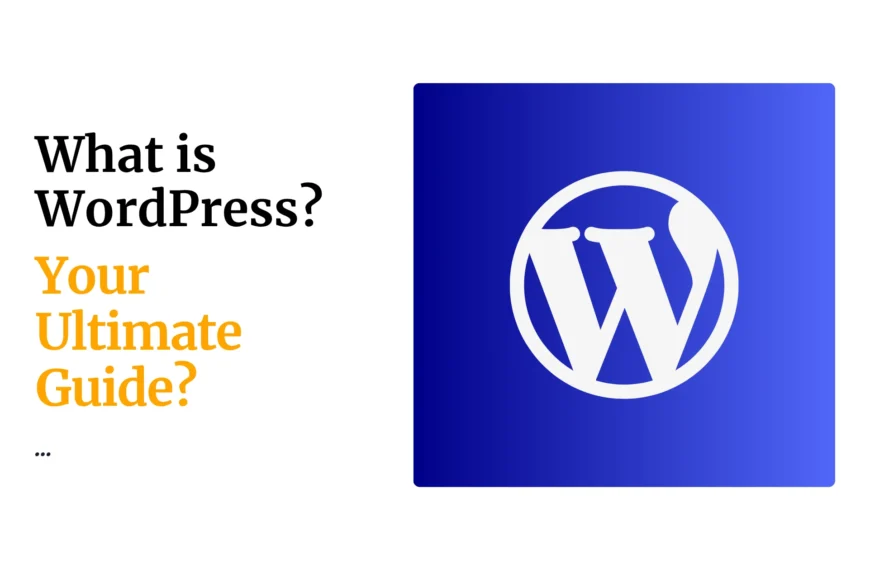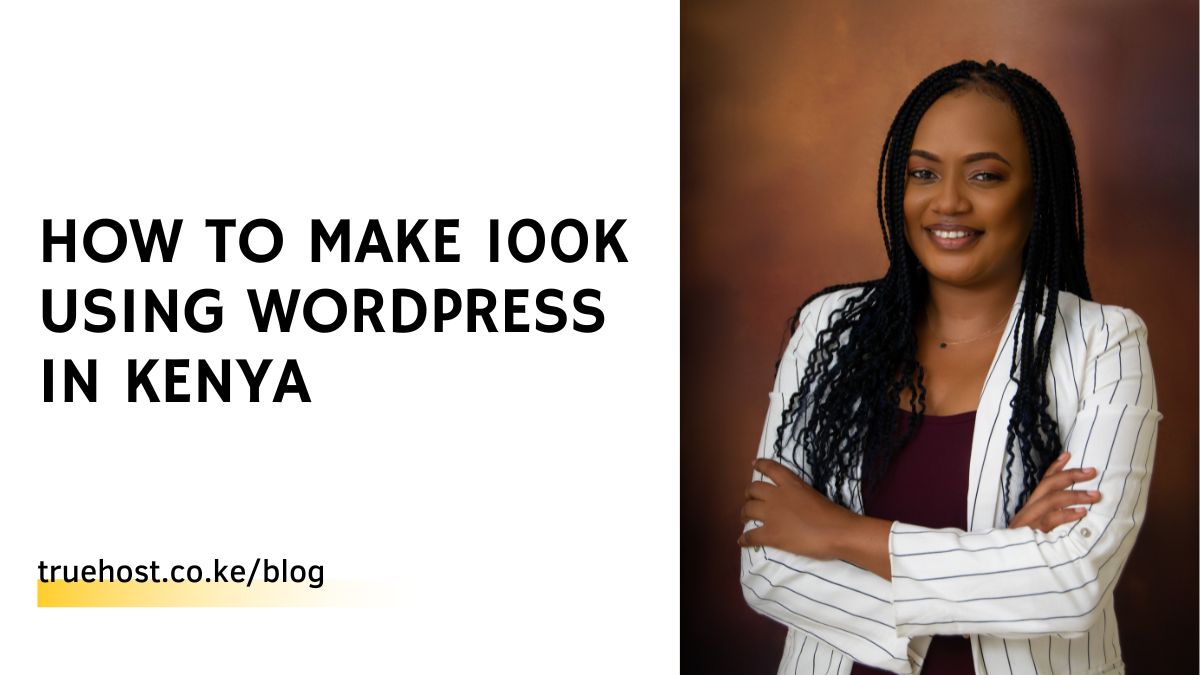Last updated on January 2nd, 2023 at 10:31 am
If you are looking for how to optimize your site for SEO in Kenya, this is the article for you. Here, you will learn techniques you can use to improve your rankings on search engines.
It will also ensure that your website is making the necessary efforts toward achieving your intended goals.
If your SEO is strong, you will not only increase traffic but also increase your chances of converting your site visitors into customers.
In this post, we will discuss in detail the tips and techniques on how to Optimize Your Site for SEO in Kenya.
Let’s now start with defining the term SEO;
SEO stands for “Search Engine Optimization” or how easy it is for Google to find your website page.
Using search terms that are related to your brand increases the likelihood that customers will find your website.
As a result, people will be more likely to notice your website.
That’s all about defining SEO in simple terms.
Let’s unfold how to optimize your site for SEO in Kenya with the following tips:
#1. Conduct thorough keyword research
Keyword research is not about search volume and traffic. It is all about identifying potential customers’ interests, meeting their needs, and eventually converting them into customers.
If you want to create a new website or you want to revamp your current keyword targeting, then consider the following important stages:
1. Generate Keyword ideas
Here you can filter the keywords and group them by search Intent (the reason behind a searcher’s query)
Listed below are some of the important keyword groups:
- Informational keywords
These are queries in which a searcher seeks general information on a topic.
For example: What is DDR4 ram?
- Navigational Keywords
In these keywords, the searcher usually knows where they want to go.
For example, the Newegg DDR4 ram.
- Commercial Investigation Keywords
This category indicates that someone is looking for information on a product that they intend to purchase in the future.
This keyword category will often be comparisons and include keyword modifies like “best DDR4 ram”
Transactional Keywords- They show that someone is ready to purchase “buy DDR4 ram”
2. Analyze Google’s top 10 search results
This is a super important step in keyword research.
The top 10 ranking pages are going to give you information on things like content format, and also help you to understand how hard it’s going to be to rank on Google for your target keyword.
While at it you will also analyze the titles of the ranking pages.
3. Assess how hard it will be to rank on Google for your keyword.
In this stage, you’ll identify the number of unique websites linking to this page. These domains are called referring domains.
As you look through the referring domains, you’ll also look at the domain rating. This represents the overall strength of a website backlink profile.
In addition, if your website has a huge domain reference, then you have to account for the fact that you’ll be competing against powerful sites.
Therefore, it’s better to play in the same domain rating ballpark region or be prepared to build more links than the top ranking pages.
There are many benefits to keyword research, but it’s important to ensure the keywords you’re targeting are relevant to your target audience.
#2. Produce long and value-rich content
Long-form content is really important in optimizing your site for SEO in Kenya.
When it comes to SEO optimization of your pages to get the best results on Google, it is important to consider the ideal length for your content.
Doing this is not as straightforward as it seems. It depends on the type of content you’re producing and the kind of answer the person searching for wants to find as well.
The ideal length completely depends on what the user is searching for. So, if the user is searching for something where they want a comprehensive long answer, your content will be longer than if the user wants to find something simple.
In addition, Google needs to know that the person, when they go to your website, is going to get all the information they need and thoroughly understand the subject.
Therefore, while writing content, you need to demonstrate that you have the full knowledge of the subject matter.
#3. Optimize for on-page SEO in Kenya
In search engine optimization, pages are “optimized” to help them rank higher.
On-page SEO is also one of the things you have full control of in SEO.
While on-page work might not be enough to rank for competitive terms, it’s a foundation for higher Google rankings and more traffic for your site.
In this stage, it’s important to consider the following steps:
- Understand and match search intent
This is the reason behind a searcher’s query.
- Increase the topical relevance of your page.
This can be done by:
- Analyzing the top ranking pages
- Using Google auto-suggest
- Using people’s ask box to find points worth covering
- Add your target keyword in your title, meta description, and H1 tag
A study shows that there is a small correlation between rankings and strategically placing precise-match keywords.
Therefore, including your target keyword in the title, meta description, and H1 tag can assist searchers in quickly determining that your page is the most relevant to their search query.
- Optimize your images with alt tags
Image alt tags allow you to provide descriptive texts for images on your page.
It is important to do this because of the following reasons:
- When your image fails to load on your page, the alt text will appear as a replacement for the image.
- It is helpful for those with vision impairments (screen readers).
- It can also help you rank your images in Google images.
- Add structured data where it makes sense
In many search results, there are things like star ratings. This is the result of reviewed structured data.
It can have a positive impact on your click-through rates
Using this is not about increasing visibility in Google search since not all schema types create additional details in the SERP.
Instead, it’s about making it easier for search engines to understand what your pages are about.
#4. Get quality backlinks in Kenya
Backlinks play a major role in off-page SEO. Therefore, you should look for backlinks from well-known publications.
To successfully optimize for off-page SEO, consider the following stages:
- Competitor’s Backlink Analysis
In this section, you will evaluate your competitor’s backlink profile to determine the strength of your own.
To analyze your competitors’ links, you can use tools such as ahref, MOZ, or SEMRUSH.
Unfortunately, Google Search Console cannot be used to investigate a competitor’s backlink profile.
Therefore, only the site owner or webmaster has access to Google search console data.
- Evaluate your link-building options
Link building is the most common way to improve off-page SEO. Nonetheless, it is the most difficult because it requires a significant investment of time, expertise, and financial resources.
Therefore, depending on the time and the resources at your disposal, you can use more than one building strategy. This will depend on the value that it will offer to our business.
Outreach, citations, paid ads, and social media sharing are all methods for repairing broken links and improving the SEO of your website.
#5. Optimize the website for mobile
Many people consume the internet on their phones. This makes it important to make your site mobile-friendly.
Here are five things you can do to optimize the website for mobile:
- Make it responsive
This category includes designing your website so that the layout adapts to the size of the screen from which you’re viewing it.
Web browsers can detect whether you’re viewing a website on a laptop, a phone, or a tablet.
With their proper coding, they can display information in a way that is both easier to understand and more appropriate for the device being used.
This also helps with SEO as search engines usually look for and index higher this type of flexibility.
Therefore, before you launch your site, ensure it looks good and works properly on desktop and mobile.
- Prioritize content
To get the most of your mobile experience for your users, you need to prioritize how you present content on your website.
Try the following tips:
- Improve the microcopy on your pages
These are short sentences or words that are contextual and targeted to help users do things.
- Leverage progressive disclosure
Our brain can only process so much information at one time when trying to accomplish something. Like trying to search for something or deciding what product to buy.
Progressive disclosure is a design pattern that helps maintain focus and removes distractions when people are trying to accomplish something.
The concept is to show the most important information at the top of the page. Thereafter, present additional information when the user needs or asks for it.
- Use large fonts and buttons
Small screen size equals hard-to-read small fonts. Hence, it is good practice to consider using at least size 14 pixels or larger when designing for mobile.
Ideally, you should also use standard web fonts so that your user doesn’t have to download any more custom fonts when loading your site.
#6. Speed up the pages
The speed of a website’s page is one of the factors Google uses to determine its ranking in organic search results.
Page speed is the rate at which a user can access the content of a given page in terms of website performance.
Page speed also affects the user experience.
Here are some important tips that can improve page speed:
- Research hosting providers that fit your needs
- Remove any unnecessary plugins
- Compress and optimize your images
- Reduce the number of your redirects
- Cache your web pages
- Monitor your web page performance over time
Final Thoughts
In this article, we’ve looked at how to optimize your site for SEO in Kenya.
If you employ the SEO techniques mentioned in this post, a person searching for a keyword may have a higher chance of finding that webpage, and consequently, your brand.
However, there are a lot of new SEO strategies you can use to help search engines rank your website higher.
It is important to note that blogs have remained one of the most effective ways to optimize a website this year.
In addition to boosting your search engine rankings, it directly impacts user behavior. If you consistently prioritize quality and optimization for your blog posts, your website’s authority will grow over time.
 Domain SearchInstantly check and register your preferred domain name
Domain SearchInstantly check and register your preferred domain name Web Hosting
Web Hosting cPanel HostingHosting powered by cPanel (Most user friendly)
cPanel HostingHosting powered by cPanel (Most user friendly) KE Domains
KE Domains Reseller HostingStart your own hosting business without tech hustles
Reseller HostingStart your own hosting business without tech hustles Windows HostingOptimized for Windows-based applications and sites.
Windows HostingOptimized for Windows-based applications and sites. Free Domain
Free Domain Affiliate ProgramEarn commissions by referring customers to our platforms
Affiliate ProgramEarn commissions by referring customers to our platforms Free HostingTest our SSD Hosting for free, for life (1GB storage)
Free HostingTest our SSD Hosting for free, for life (1GB storage) Domain TransferMove your domain to us with zero downtime and full control
Domain TransferMove your domain to us with zero downtime and full control All DomainsBrowse and register domain extensions from around the world
All DomainsBrowse and register domain extensions from around the world .Com Domain
.Com Domain WhoisLook up domain ownership, expiry dates, and registrar information
WhoisLook up domain ownership, expiry dates, and registrar information VPS Hosting
VPS Hosting Managed VPSNon techy? Opt for fully managed VPS server
Managed VPSNon techy? Opt for fully managed VPS server Dedicated ServersEnjoy unmatched power and control with your own physical server.
Dedicated ServersEnjoy unmatched power and control with your own physical server. SupportOur support guides cover everything you need to know about our services
SupportOur support guides cover everything you need to know about our services








